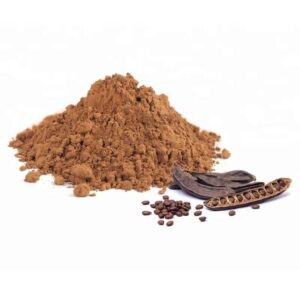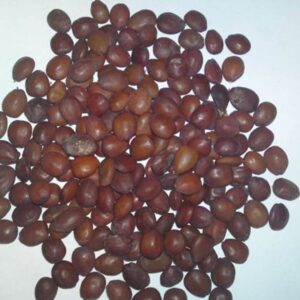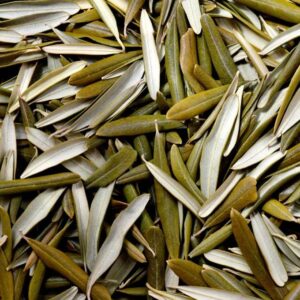Description
Tunisian Carob: Sustainable and Nutritious Choice for Food Industries Worldwide
Welcome to the ultimate resource on Tunisian carob, a versatile and nutritious ingredient sourced directly from Tunisia, ideal for food industries and businesses worldwide. This product sheet will delve into the origins, nutritional benefits, culinary applications, and sustainability aspects of Tunisian carob, highlighting why it deserves a place in your product line.
Origins and Cultivation
Tunisian carob, known scientifically as
Ceratonia siliqua, is native to the Mediterranean region, thriving particularly well in the warm and arid climate of Tunisia. The carob tree produces pods that are rich in nutrients and have been utilized for centuries in various culinary and industrial applications.
The cultivation of carob in Tunisia benefits from the country's fertile soils and optimal climate conditions, ensuring high-quality produce year after year. Tunisian farmers have perfected traditional methods of cultivation while also embracing modern agricultural practices to enhance yield and quality.
Nutritional Benefits
Carob pods are renowned for their impressive nutritional profile, making them a valuable ingredient in the food industry:
- Rich in Fiber: Carob is an excellent source of dietary fiber, promoting digestive health and aiding in weight management.
- Mineral Content: It contains essential minerals such as calcium, potassium, magnesium, and phosphorus, contributing to overall health and wellness.
- Antioxidants: Carob is packed with antioxidants, particularly polyphenols, which help combat oxidative stress and inflammation.
Moreover, carob is naturally sweet, making it a healthier alternative to refined sugars in various food products. Its low glycemic index also makes it suitable for diabetic-friendly formulations.
Culinary Applications
The versatility of Tunisian carob extends across a wide range of culinary applications, making it a sought-after ingredient in the food industry:
- Baking: Carob powder can be used as a substitute for cocoa powder in baking, imparting a unique flavor profile and natural sweetness to cakes, cookies, and desserts.
- Beverages: Carob syrup is popular in beverages, adding depth of flavor to hot drinks like coffee and enhancing the taste of smoothies and shakes.
- Snack Bars and Confectionery: Incorporating carob into energy bars, chocolates, and confectionery products enhances nutritional value while appealing to health-conscious consumers.
The mild, caramel-like flavor of carob also complements savory dishes, providing an opportunity for innovative culinary creations in both traditional and modern cuisines.
Sustainability and Traceability
Tunisian carob stands out not only for its nutritional benefits and culinary versatility but also for its sustainability credentials:
- Natural and Renewable: Carob trees are drought-resistant and require minimal water once established, making them environmentally friendly.
- Local Economy Support: By sourcing Tunisian carob, businesses contribute to the livelihoods of local farmers and promote sustainable agricultural practices.
- Traceability: Our supply chain ensures traceability from farm to final product, guaranteeing quality and ethical sourcing practices.
Choosing Tunisian carob aligns with global sustainability goals and supports the development of eco-friendly food products.
Market Potential in Europe and Asia
The demand for natural, nutritious, and sustainable food ingredients is on the rise globally. Tunisian carob presents a unique opportunity for businesses in these regions:
- Consumer Trends: Health-conscious consumers seek products with clean labels and natural ingredients, driving the demand for carob-based products.
- Regulatory Compliance: Tunisian carob meets international food safety and quality standards, ensuring compliance with regulatory requirements in target markets.
- Diverse Applications: From bakery and confectionery to beverages and health foods, the versatility of carob caters to diverse consumer preferences and dietary needs.
Moreover, the distinct flavor profile of Tunisian carob offers a competitive edge, appealing to discerning palates across different culinary traditions.
In conclusion, Tunisian carob represents a sustainable, nutritious, and versatile ingredient for food industries and businesses worldwide. Whether you are looking to enhance the nutritional profile of your products, explore innovative culinary creations, or meet the growing demand for sustainable ingredients, Tunisian carob offers a compelling solution.





Reviews
There are no reviews yet.